
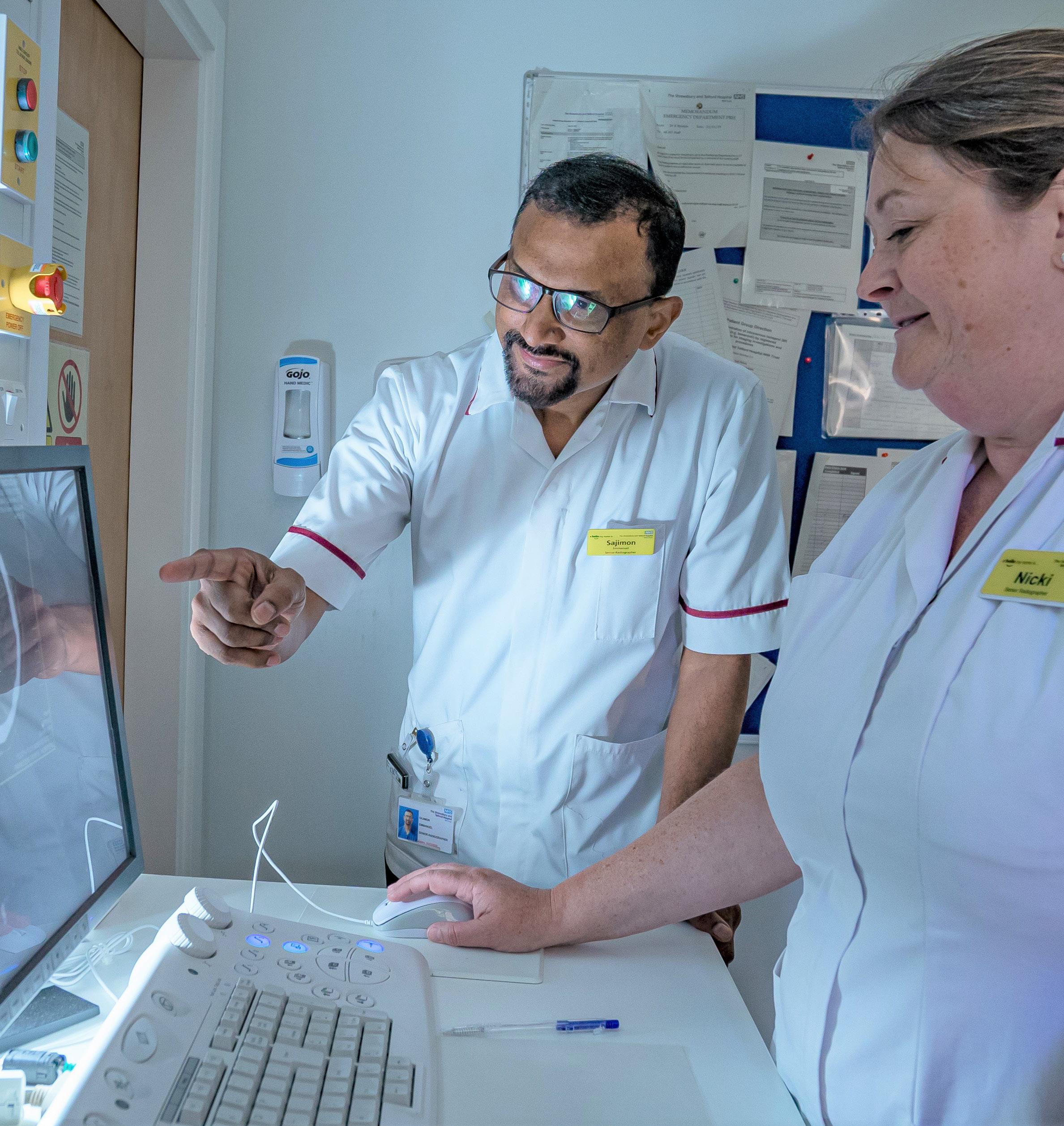


Issue 8 Priorities for 2023/24 Palliative and End of Life Care First Time for Patients Focusing on Our Providing Excellent Getting it Right Page 4 Page 14 Page 8 IMPACT Partnering Ambitious Caring Trusted July 2023
The aim of each improvement project is to help make our organisation a great place to work and to receive care for everyone. Every day we all strive to provide high quality care for our patients. Delivering these improvements, living our values, and working together to get to where we want to be.
Our Values Week has provided an opportunity to celebrate our commitment to our values, recognise the important role they play and the difference they make to our colleagues and patients. We believe that by working towards and living our values, we will behave in a way which will ensure the best outcomes and experience for our patients and their families.
Palliative and End of Life Care (PEoLC) is one area where we are making great strides. Our committed PEoLC team is supporting colleagues to be skilled and supported to deliver excellent care for our patients. You can read more about this on page 14, along with how our Swan Rooms and new Swan Suite are benefitting patients and families at the most difficult of times.
On page 6, you can find out more about the work our Quality team is doing to support our vulnerable patients and help
FOREWORD
Louise Barnett Chief Executive
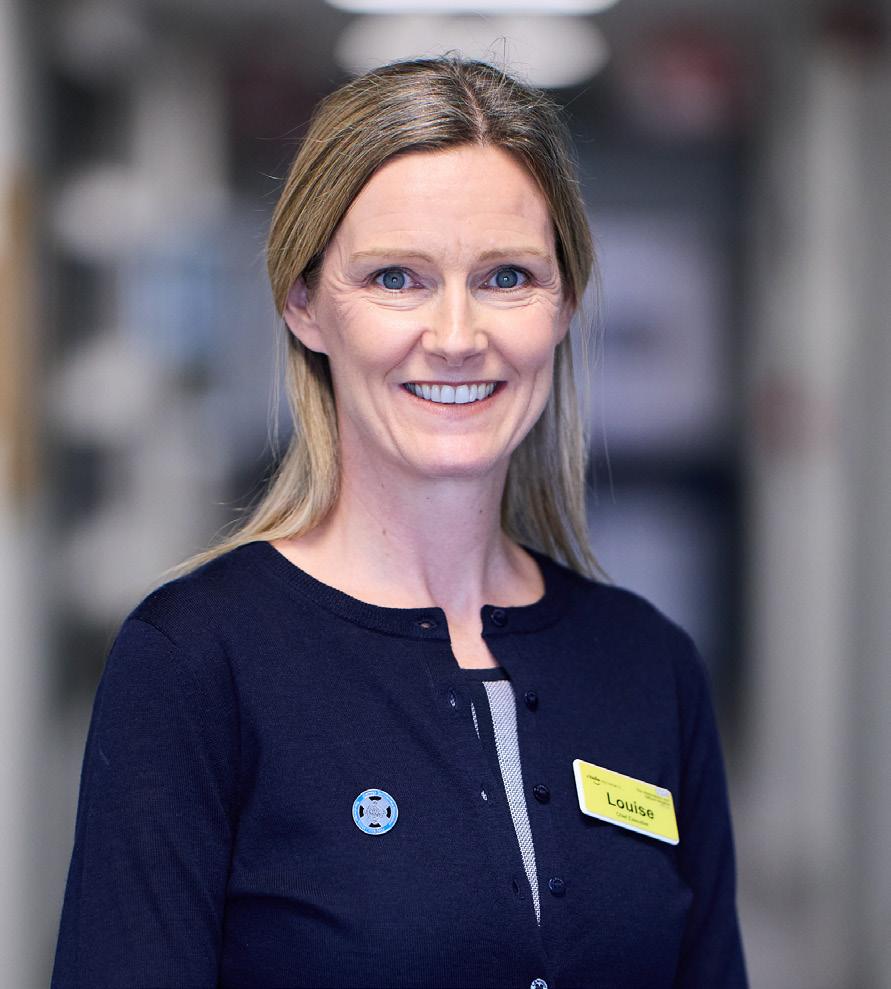

Dear colleague,
In this edition we focus on what our priorities are for the year ahead, driven by our Operational Plan. We also highlight some of the fantastic improvements we are making to deliver high quality care as part of our ongoing Getting to Good programme.
minimise the risks of their health deteriorating. This is so important for patients. We are also working to reduce length of stay and ensure our patients are not in hospital any longer than they need to be. Quality Matron, Clare Walsgrove, is doing an incredible job championing reconditioning of patients and working with many teams across the Trust. Clare has been recognised for this work nationally with a platinum award, one of only a handful of NHS colleagues in the country to receive one. This is amazing, well done to Clare and her colleagues.
It is also fantastic that our organisation was also recently awarded the NHS Pastoral Care Quality Award recognising our efforts to support and develop our internationally educated nurses. Supporting our overseas colleagues when they join our organisation is hugely important for us all. We are really pleased to have welcomed 500 nurses from 20 different countries, so far. You can read more about how we are supporting our international colleagues to settle into life in the UK and at SaTH on page 16
I hope that you were able to be part of our recent Innovation Week. This provided a great opportunity for us to learn about, and be inspired by, some of
the improvements that we are making across our organisation and how they are benefiting our patients and our colleagues.
So many of the improvements that we have showcased in Impact have been about innovation and trying new ways of working to help make a difference for our patients – whether that is introducing new approaches to enhance a patient’s experience of care in our hospitals or helping to improve waiting times.
If you have ideas for change, I would really encourage you to explore these with your team or your line manager. Our fantastic colleagues in our Improvement team will also be able to help you. You can contact them at sath.improvementhub@nhs. net. If you or your team has an improvement that you would like to feature in Impact, please contact our colleagues in the Communications team via sath. commsteam@nhs.net
Thank you.
Impact Magazine - Issue 8 2
MESSAGE
Mary Aubrey Getting to Good Programme Director
Dear colleague,
Each week I hear about the fantastic work that is going on in frontline teams and behind the scenes to make improvements for our patients and community through our Getting to Good programme.
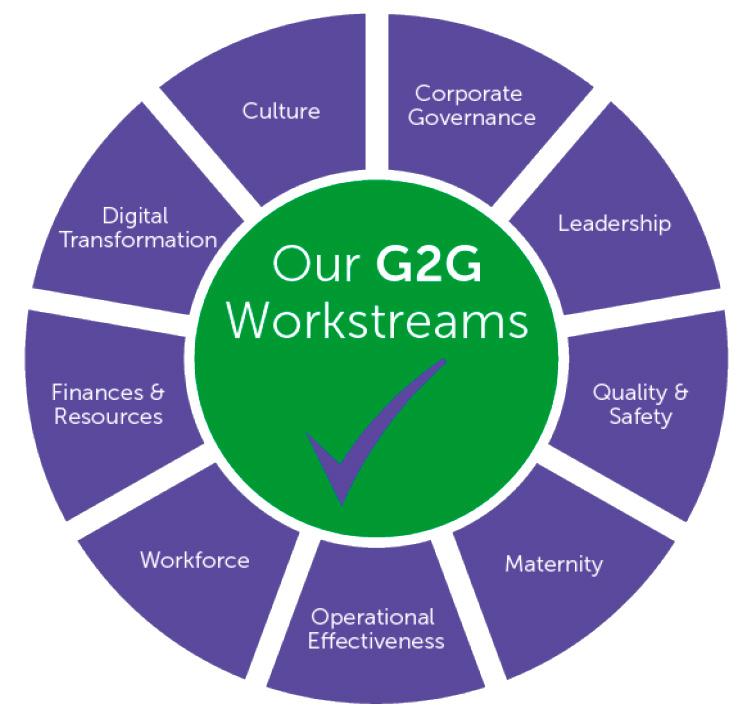
The overarching aim of Getting to Good is to enable us to provide high quality care for everyone in our communities and work with partners to improve the overall health and wellbeing of the local population.
I am joined each week by representatives from across the organisation, as well as from NHS England who are providing improvement support to us, at our oversight meetings. This is to ensure that our Getting to Good programmes are on track for successful completion, and that they remain sustainable.
We were recently updated on the positive work that is being undertaken as part of the Emergency Care Transformation Programme. This is a relatively new programme of improvement work supporting teams to bring a structured focused evidenced-based approach to change. It is really encouraging to hear the teams are already delivering some of their key 134 actions through the programme’s five workstreams.
This includes improving time to initial assessments when patients arrive in our Emergency Departments, as well as launching the ImproveWell app. ImproveWell is a really important communications tool for colleagues working in our EDs as it means they can share their ideas on how their area of work can be improved, and also feedback on how their
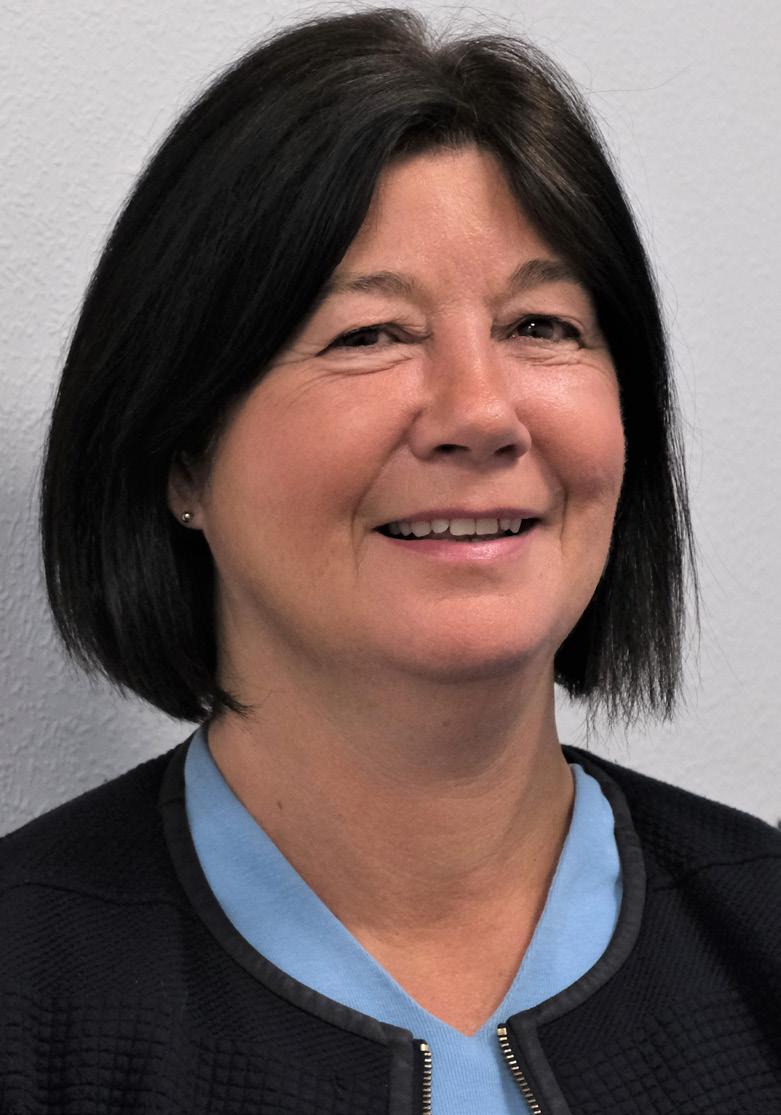
day is going.
I also wanted to thank our colleagues in Finance who have completed three of their improvement projects. These include implementing finance training for budget holders, new managers and consultants and others across the organisation. More than 60 budget holders have now been trained, with further monthly training sessions in place.

This has contributed to our achievement of the national NHS Level 2 Future Focussed Finance (FFF) accreditation. This award recognises NHS organisations that have good finance skills development practices in place. Following external assessment, the finance team was awarded the accreditation in May which is a fantastic achievement, and we are now working towards level three, the final level.
We recognise that we still have more to do, however, with your support and determination, we are continuing to make good progress on our improvement journey.
Thank you.
Impact Magazine - Issue 8 3
Objective:
Deliver phase three of our Getting to Good Programme to continuously improve care for our patients and community standards
Objective:
Restore and sustain elective orthopaedics and other services
Objective:
Achieve the 28 day faster cancer diagnosis standard for patients
Objective:
Improve flow through our hospitals by delivering our Emergency Care Improvement Programme
Objective:
Improve efficiency, deliver within our budget, demonstrating financial prudence and making every penny count
Enabler:
Value difference and live the People Promise in our teams
Enabler: Progress our Hospitals Transformation Programme plans to improve care for all
Enabler: Implement phase one of our Electronic Patient Record (EPR) programme - includes replacing the Patient Administration System
Enabler:
Estates – develop an estates plan to optimise our current estate
Enabler: Information Governance – improve culture and practices across the Trust
improve to improve patient safety, clinical effectiveness and patient experience.
Thanks to your support, in 2022/23 we made significant improvements in:
OPERATIONAL PLAN
We are continuing to make significant progress on our journey of improvement and we are determined to achieve our vision to provide excellent care for the communities we serve.
Our Operational Plan sets out our Trust objectives for 2023/24 to tackle our challenges and drive forward our key transformational programmes. It builds on our achievements in 2022/23, which have given us strong foundations for the year ahead.
Leaders are actively working with teams to achieve these objectives and will be sharing with you their local delivery plans.
You can find out more about our Operational Plan and the operational objectives and enablers over the coming weeks as well as featuring progress in Impact. Everyone has a role to play and we encourage every team to have a conversation about how you can make a positive contribution.
Inese Robotham, Assistant Chief Executive, said: “Whilst we know our services remain under significant pressure our aim is to maximise the opportunities that 2023/24 brings. By working together in teams there is a lot we can do to make a real difference for our community and also our colleagues.
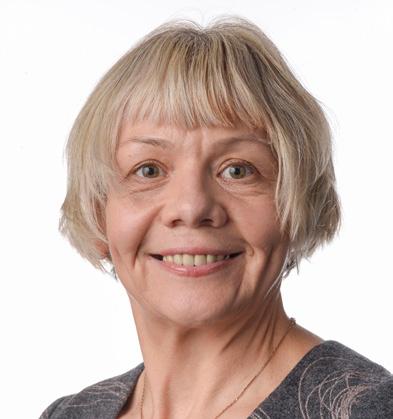
“We cannot do this in isolation and we are working closely with health and care partners regarding the overall system priorities to ensure a joined up approach to delivering truly integrated care for our patients. If we work effectively together, we can bring about tangible benefits for our colleagues and patients, as well as developing strategic plans for the future.”
QUALITY PRIORITIES
Quality is the golden thread throughout our Operational Plan. Working with our clinical colleagues, we have agreed nine core Quality Priorities for 2023/24.
These complement the objectives and enablers set out in our operational plan and offer the greatest opportunity for us to
working to share learning
• Implementing a “train the trainer” programme for the delivery of basic life support skills inhouse, increasing flexibility in the delivery of mandatory training
• Greater multidisciplinary and cross divisional
• Introducing our Enhanced Patient Supervision
Trusted OUR GETTING TO GOOD IMPROVEMENT JOURNEY
Impact Magazine - Issue 8 4
Team (EPS) working to reduce falls, with 14 people recruited
• Leading the ward processes improvement work which has been progressed across all medical wards, and has started to improve flow through the hospital
• Supporting patients through our discharge lounges
Our 2023/24 priorities build on your fantastic achievements last year. Importantly, they will bring us one step closer to achieving our Getting to Good aim.
Hayley Flavell, Director of Nursing, said: “We all strive to deliver outstanding care for our patients everyday. Based on your suggestions, and backed
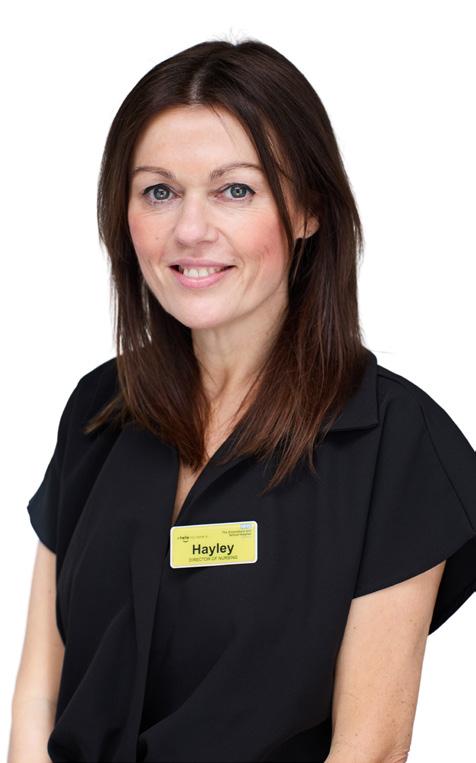
Patient Safety
Clinical Effectiveness
by our data, these priorities will help us deliver a step-change in improving the safety and wellbeing for our most vulnerable patients.
“These are absolutely the right areas to focus on, and we can’t do this without you. Through our clinical huddles we will be discussing these priorities and I really want to hear your ideas and suggestions for how we make them a reality.”
Learning from events and developing a safety culture
Integrate learning from both positive and negative incidents through a range of channels.
Support deteriorating patients
Identify, escalate and support the timely intervention for deteriorating adults and children.
Reducing inpatient falls
Continue working on the principles of cohorting and preventing deconditioning. Implement a new Trust falls training programme and continue to recruit into our Enhanced Care Supervision Team.
Right care, right place, right time - emergency care
Ensure an improved patient experience in our Emergency Departments. Reducing waiting times, making timely decisions and supporting effective interventions.
Right care, right place, right time - admission and discharge
Improve our admission and discharge processes through the Trust.
Delivering the best clinical outcomes
Address and improve care for people with diabetes through close working with system partners.
Learning from experience
Demonstrating that as a Trust we are learning and improving experience through complaints, surveys, feedback and compliments.
Focus on vulnerable patients
Improve the care of patients with a Learning Disability or Autism in the Trust.
Patient Experience
Improving palliative and end of life care
Continue with delivering our strategy focusing on improving our care after death through ongoing education, support and monitoring.
Undertake a review of our end of life care education provision, benchmarking against peers, to develop a revised education programme.
Trusted OUR GETTING TO GOOD IMPROVEMENT JOURNEY
Impact Magazine - Issue 8 5
1 4 7 2 5 8 3 6 9
PATIENT SAFETY INCIDENT RESPONSE FRAMEWORK (PSIRF)
The launch of the new Patient Safety Incident Response Framework (PSIRF) in September 2023 will support a significant change in how we learn from incidents. This is a radical shift in the way the NHS responds to incidents with greater focus on the trends and commonality that will lead to genuine quality improvement.
Three working groups are being established, with representation from clinical and operational colleagues. They will join forces at an away day this month (June), which will help develop our roadmap towards the implementation of PSIRF.
We have done the data analysis and now need to engage with colleagues across all services to get this right for our Trust and most importantly for our patients. We will be fully supporting colleagues through education and training over the summer and will need everyone’s help in embedding this new way of working.
Dr John Jones, Medical Director, said: “We need to continue our work to build a safety system and safety culture and these are intrinsically linked. PSIRF will be fundamental in supporting us to focus our efforts on the deep-rooted issues and will help us provide a
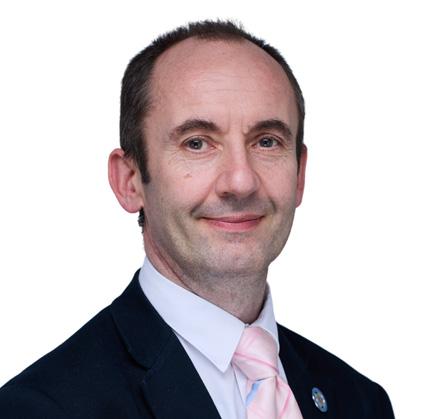
better service to our communities.
“At the heart of PSIRF is supporting a compassionate and flexible approach that enables all of us to focus on our core quality priorities. This will be a significant opportunity for us to gather all the information in a logical way and set out to improve care for the long-term.
“Over the coming months we will be sharing more information and there will be a range of ways to take part, so please get involved.”
SPOTLIGHT ON IDENTIFYING AND SUPPORTING DECONDITIONING PATIENTS
We know we need to work differently to minimise the risks of our patients’ health deteriorating in our hospitals – the third of our nine quality priorities.
Last year our Learning from Deterioration Group reviewed a number of cases. Our data and the clinical discussions from this group of experts shows there is real learning that we can take forward that will deliver tangible change for patients.
The evidence is clear that the longer someone stays in hospital the greater their risk of infection and loss
of independence.
Quality is woven throughout everything we do and by taking early, preventative action we can support more patients to maintain their physical and mental wellbeing, as well as reducing length of stay and reducing waiting times.

Trusted OUR GETTING TO GOOD IMPROVEMENT JOURNEY
Impact Magazine - Issue 8 6
Quality Matron, Clare Walsgrove, and her team are leading the way in championing the reconditioning of patients. Their hard work and dedication has been recognised through a national Platinum award – amongst the first in the country to be given.
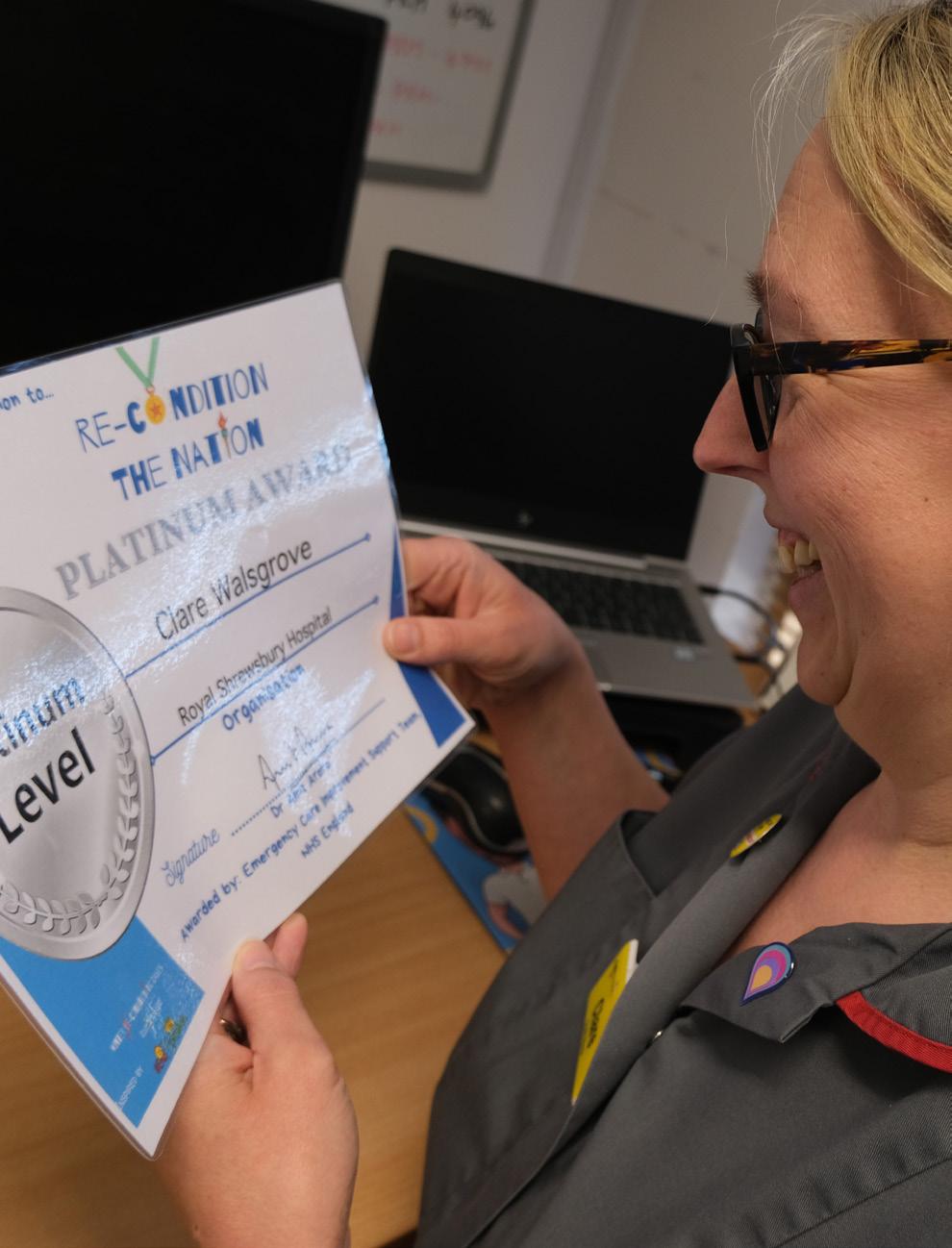
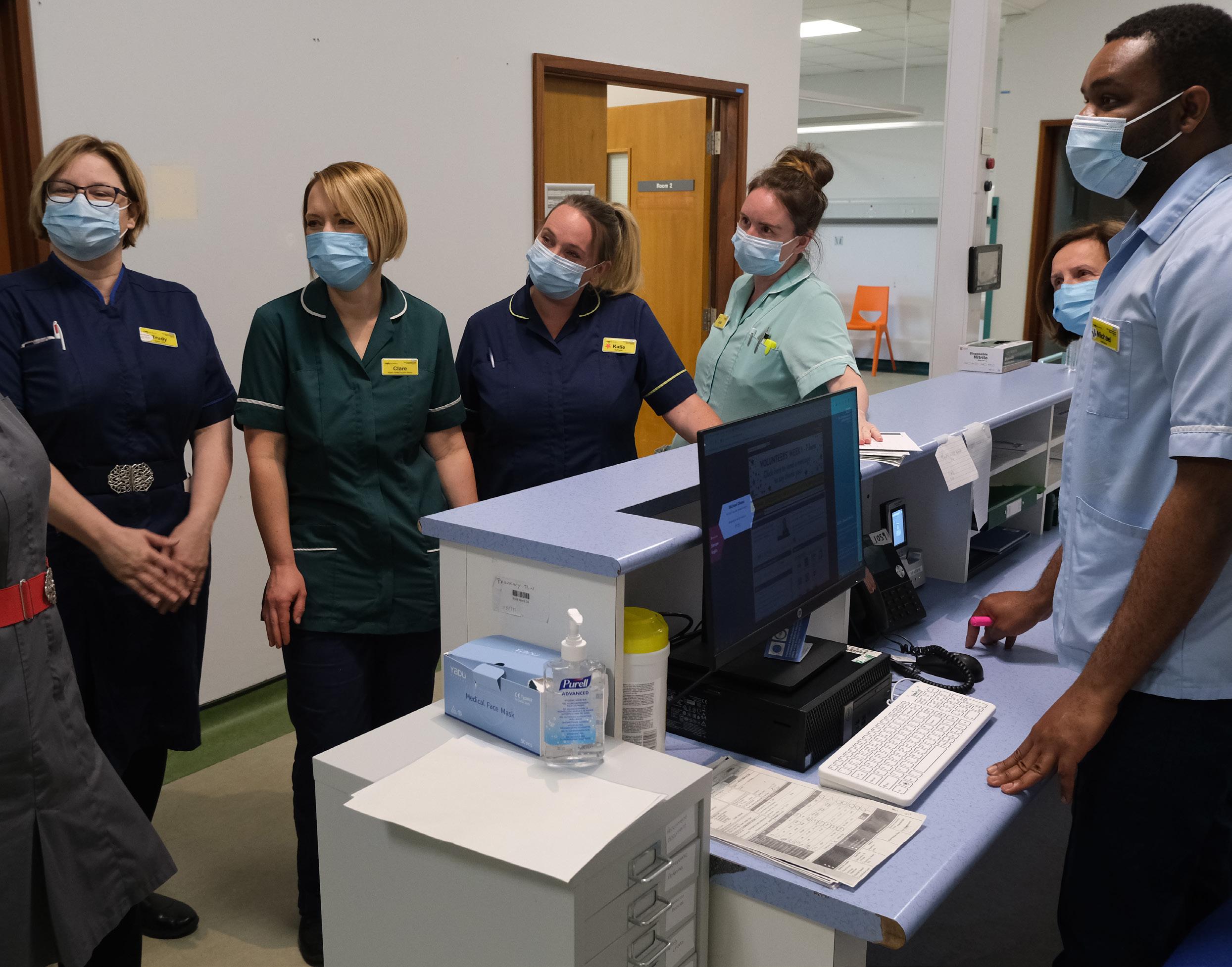
Clare said: “Sometimes it is the smallest thing that can make a difference, stopping for a chat, encouraging that extra walk or generally offering positive reinforcement.
“I’m really proud of how everyone has got behind the national Re-conditioning Games initiative. From chairbased exercises to balloon tennis, the creativity and compassion shown by our teams has supported many patients so far.
“It is so rewarding when a patient is helped to recover and they are able to go home, and I know that if we really focus on preventative care we can save lives.”
Trusted OUR GETTING TO GOOD IMPROVEMENT JOURNEY
Impact Magazine - Issue 8 7
GETTING IT RIGHT FIRST TIME
A key priority on our improvement journey is ensuring that we are always identifying new opportunities to improve the treatment and care we provide our patients.
Our clinical teams, in partnership with external clinicians, have been reviewing the way we deliver a number of our surgical specialities to understand where we are performing well in comparison with other Trusts, and what we could do to improve.
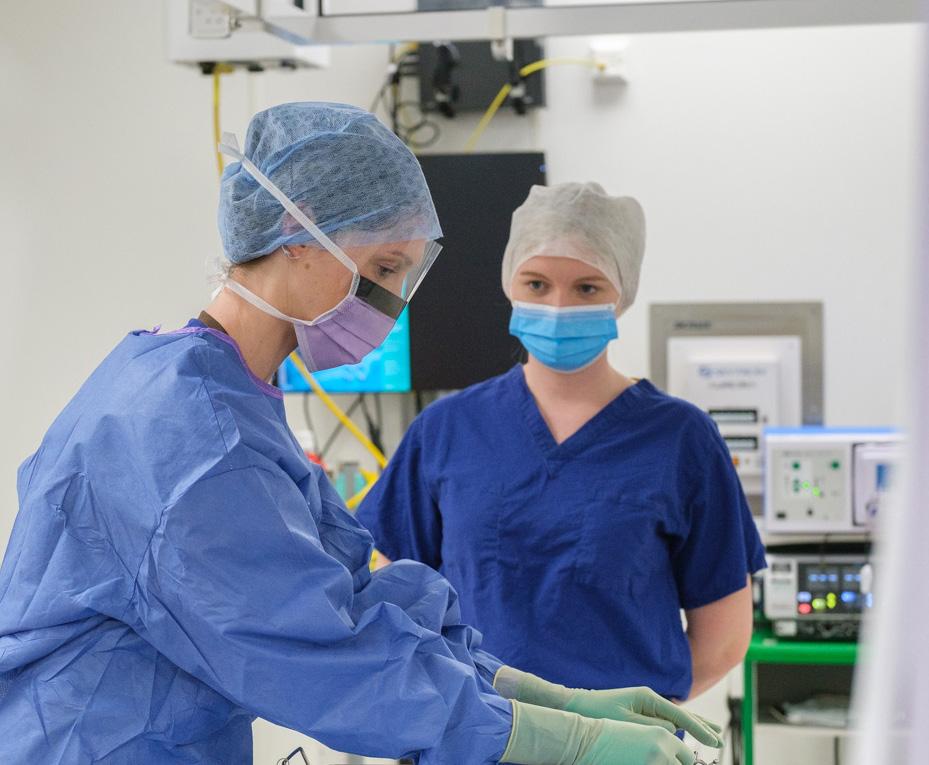
The aim is to improve productivity, efficiency and capacity so patients can access treatment quicker and receive high quality care every day.
They are being supported to do this as part of the national Getting It Right First Time (GIRFT) programme. Senior clinicians from GIRFT have
been carrying out clinically-led ‘deep dive’ reviews benchmarking against best practice nationally. To date they have conducted more than 40 reviews including within Orthopaedics, Gynaecology, Geriatrics, Ear, Nose and Throat, Cardiology, Urology and Ophthalmology. We have featured a number of specialties here and will share more about other specialties in future editions of Impact.
The reviews have provided valuable feedback resulting in a number of recommendations with each of the clinical teams being supported to deliver these.
Partnering OUR GETTING TO GOOD IMPROVEMENT JOURNEY
Impact Magazine - Issue 8 8
General Surgery
• The service has a good length of stay for emergency laparotomy (operation to examine abdominal organs), colon cancer resection and rectal cancer resection
• The Trust is also an excellent performer for day case rates for inguinal hernia being the seventh best performer in England, and also laparoscopic cholecystectomys (minimally invasive surgery to remove the gallbladder) and is in the second quartile in England
• The team has also been sharing learning with other providers in the region which is helping other Trusts enhance their day case pathways
• Oppportunity identified to reduce length of stay of less than 2 days rate for patients undergoing appendicectomy
• Opportunities identified in the outpatient pathway, including patient initiated follow up (PIFU) and reducing unnecessary follow up appointments
Gynaecology
• The specialty has been acknowledged for the investment given to nurse education
• The specialty has a dedicated gynaecological nursing workforce
• The GIRFT Regional team recognised the nursing model as an exemplar and regularly reference this model to other Trusts
• Opportunities to reduce length of stay identified
Geriatrics
• The speciality has increased its nursing workforce to support faster discharges for the more complex frail patients
• Increased frailty presence in A&E
• Further opportunities include increasing frailty awareness, and access to therapies
Ophthalmology
• Cataracts – following the initial GIRFT clinical review, the service has increased the number of cataracts per list from 6 to 8 and now deliver dedicated high volume lists.
• The service has been commended for the improvements they have made
• Opportunity to further increase the number of cases
Colleagues from the national GIRFT Team are also working with our teams to improve theatre utilisation and develop a service strategy for orthopaedics to identify any opportunities to improve.
Also with support from external colleagues, we are reviewing the urology pathway which is one of our most challenged specialties. A number of opportunities to improve the service have now been identified, including theatre utilisation rates and reducing 78 week waits. The review also identified areas of good practice in outpatient transformation, particularly in advice and guidance, and engagement with primary care. The service rates for Patient Initiated Follow Up (PIFU) were also one of the highest in the region.
“Our peer to peer collaboration with GIRFT means we are able benchmark where we are nationally in different surgical specialties. We are also learning and benefiting from insight from top performing Trusts. This has enabled us to identify, and implement, any improvements that are needed to help us to deliver high quality care for our patients.
“Great progress is being made in a number of our specialties, including Gynaecology where our nursing model is recognised as an exemplar. We have also been recognised as an excellent performer in general surgery for our day case rates for inguinal hernia.
“Thank you to all our colleagues for embracing this programme and driving forward improvements for the benefit of our patients and colleagues.”
Steve McKew, Divisional Medical Director for Surgery, Anaesthetics and Cancer

Partnering OUR GETTING TO GOOD IMPROVEMENT JOURNEY
Impact Magazine - Issue 8 9
DEVELOPING SUSTAINABLE SERVICES FOR THE FUTURE
Every day we move one step closer towards realising our aim to deliver high quality sustainable services and better care for everyone.
Our Hospitals Transformation Programme (HTP) will help us to achieve this and will support the delivery of our Getting to Good improvement programme.
The HTP has reached an important milestone in ensuring our detailed Outline Business Case (OBC), which is the next stage of the national approval process, remains on track for submission this summer.
Our Clinical Assurance Group has unanimously supported the clinical model within the OBC. This is for the Telford site to specialise in planned care and the Shrewsbury site to specialise in emergency care.
Led by Dr Jenni Rowlands, Deputy Medical Director, and including senior clinicians from all divisions, the group meets regularly to offer clinical scrutiny to ensure that our plans offer the best care possible for our

We are continuing to work closely with our architects and health and care partners as we prepare for the planning permission that will be needed to support building works at RSH.
HTP is so much more than buildings, it is about supporting the delivery of the service reconfiguration that was agreed as part of the Future Fit consultation, addressing our most pressing clinical challenges, and establishing solid and sustainable foundations on which to make further improvements.
It will deliver a range of benefits across our communities, including:
patients.
The group’s support recognises the incredible amount of work and detailed clinical discussions that have been happening following the approval of the Strategic Outline Case (SOC) and as part of the Outline Business Case (OBC).
Dr Rowlands said: “The clinical consensus is that we cannot continue as we are.
“The in-depth clinical discussions to reach this point should not be underestimated.
“It signals just how fundamental this new clinical model will be in transforming the care we provide for patients.

“We are entering an exciting phase as we start to develop pathways. We don’t have all the answers, which is why it is so important we continue to hear from our clinical colleagues across the organisation and that we actively engage with our patients and communities.”
• A dedicated emergency department with immediate access to medical and surgical specialties
• Ring-fenced planned care capacity supporting the needs of our population

• A much better environment for patients, families and staff and integrated services for local people
We have received TIF funding of £24m to create the new planned care hub at PRH, supported by the new main entrance (pictured) and work is well underway and progressing well. Along with HTP, this exciting development is part of our overall strategic approach to provide better care for everyone.
Ambitious OUR GETTING TO GOOD IMPROVEMENT JOURNEY
Impact Magazine - Issue 8 10
Our clinically-led programme would not be complete without a strong voice representing our nursing, midwifery and Allied Health Professional (AHP) colleagues. A warm welcome to Rachel Webster who joins us as our HTP Nurse.

Rachel said: “This is an exciting time to be joining this critical programme and I am looking forward to meeting with nurses, midwives and AHPs across the Trust to help us build the right pathways that will offer an improved experience for our patients and colleagues.
“We can’t deliver this new model of care, and the associated culture

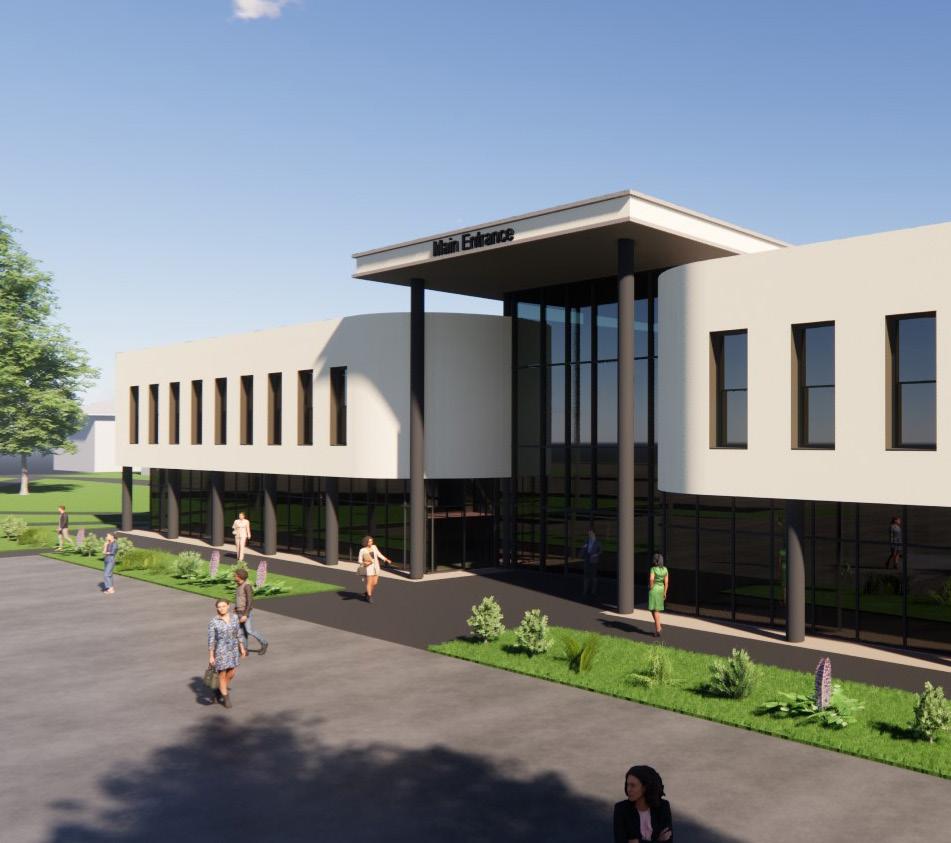
change, without the passion and commitment of our amazing nurses, midwives and AHPs. I know that by working together we can develop services that we can all be proud of to deliver an integrated and quality experience for all our patients.
“There are a range of ways to take part in this process, whether through our clinical workshops, drop-in sessions or just by stopping me in the corridor. No question or suggestion is too small and we want everyone to be part of the change.”
Ambitious OUR GETTING TO GOOD IMPROVEMENT JOURNEY
Find out more about the Hospitals Transformation Programme here Impact Magazine - Issue 8 11
PLANNED CARE HUB
This is what our fantastic new purpose-built £24million Planned Care Hub at Princess Royal Hospital will look like when it is completed next year.
The hub will play a critical part in our Getting to Good improvement journey, ensuring that we can provide our patients with care that is both timely and high quality.
This new facility will provide greater access to theatres and recovery beds all year round.
During periods of significant pressure on our services, we need to maximise our bed capacity for urgent and emergency care. This can impact on the provision of planned care and lead to postponed operations. We know that delays can have a real impact on the quality of peoples’ lives and their ability to recover.
Having dedicated recovery beds will ensure that elective activity can continue despite any seasonal pressures. This will also reduce delays and importantly improve patient outcomes and experience in our hospitals.
Work is progressing on the two-storey hub, set within the PRH, which is expected to be completed in early 2024.
At the heart of the hub will be four modern theatres – three upgraded and one new. There will also be new recovery areas and patient consultation pods, all designed with input from our clinical colleagues.
The elective activity taking place in the hub will include:
• Ear, nose and throat (ENT)
• Maxillofacial
• Gynaecology
• Breast
• Orthopaedics
• General surgery
Once open our teams will work to maximise the utilisation of this new facility and expand the range of procedures available to patients.
Dr Steve McKew, Divisional Medical Director for Surgery, Anaesthetics and Cancer, said: “Our clinicians strive every day to provide the highest quality care to our patients in the right place, at the right time.

“The Planned Care Hub will help us to achieve this for patients waiting for an elective procedure. Thank you to our colleagues who have been involved in shaping this much-needed new facility. Your input will be invaluable.”
“This is a very exciting development for our colleagues, as well as our communities.
“It will offer a new modern facility for our teams to work in, including four theatres and recovery areas. This will allow our clinical teams to operate all year round, reducing cancellations due to pressures and overall waiting times.”
Lisa Challinor, Divisional Director of Operations
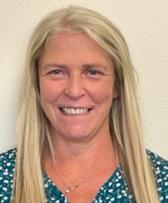
Ambitious OUR GETTING TO GOOD IMPROVEMENT JOURNEY
Impact Magazine - Issue 8 12
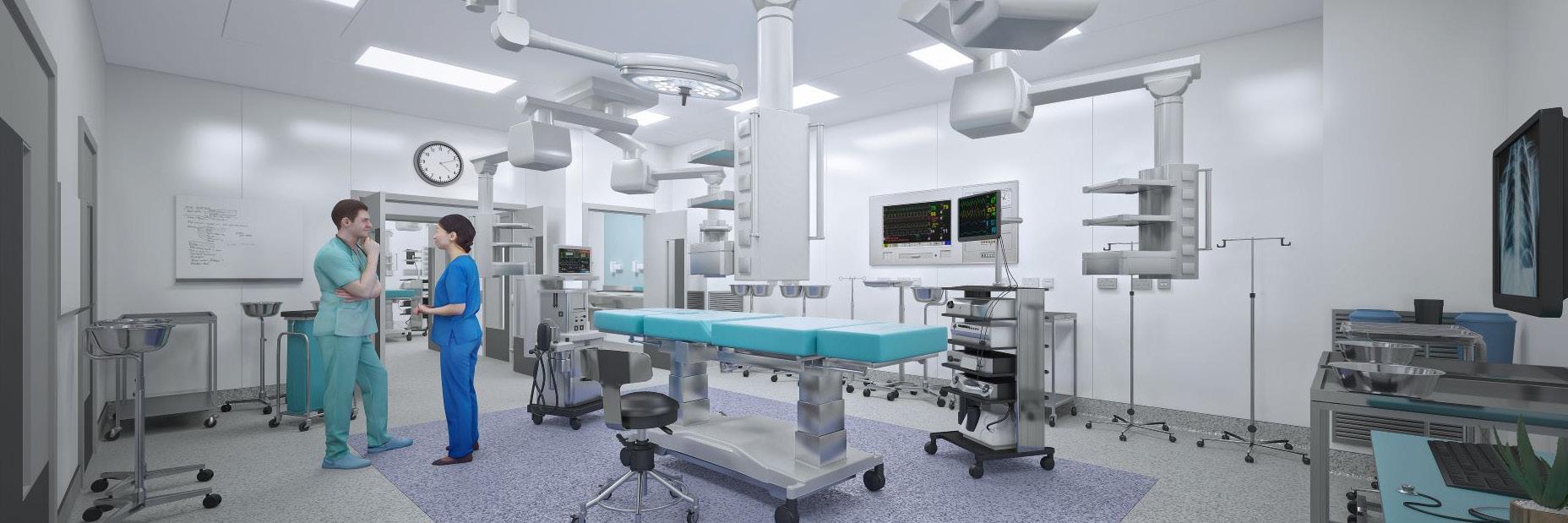
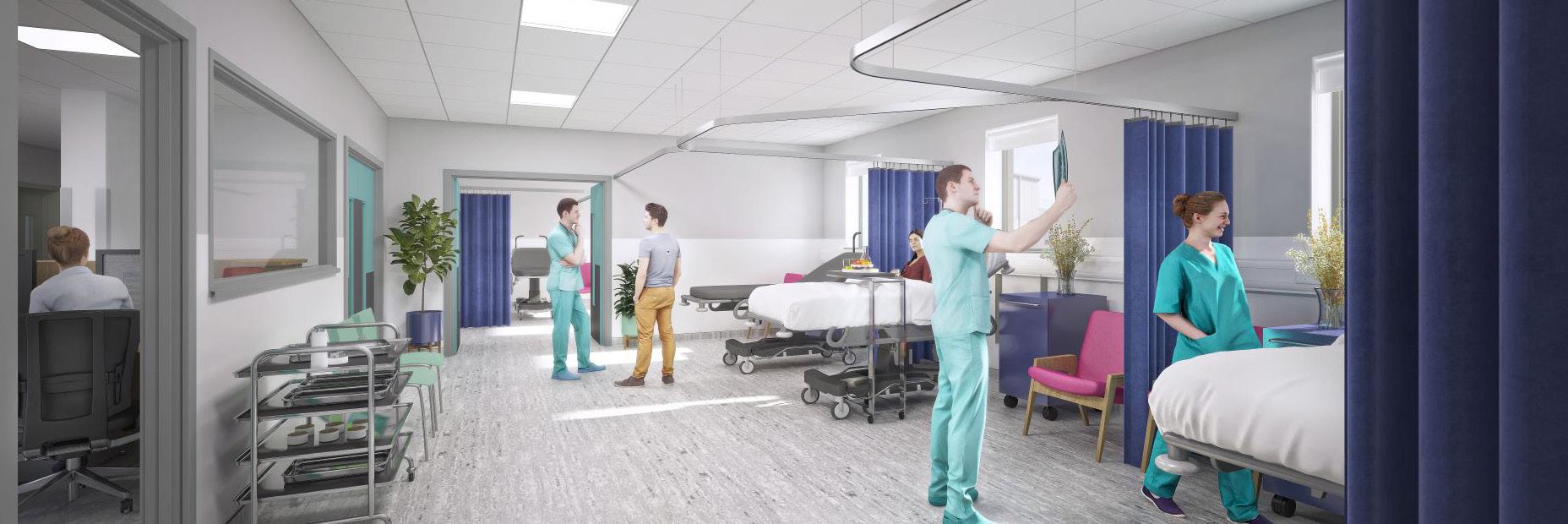

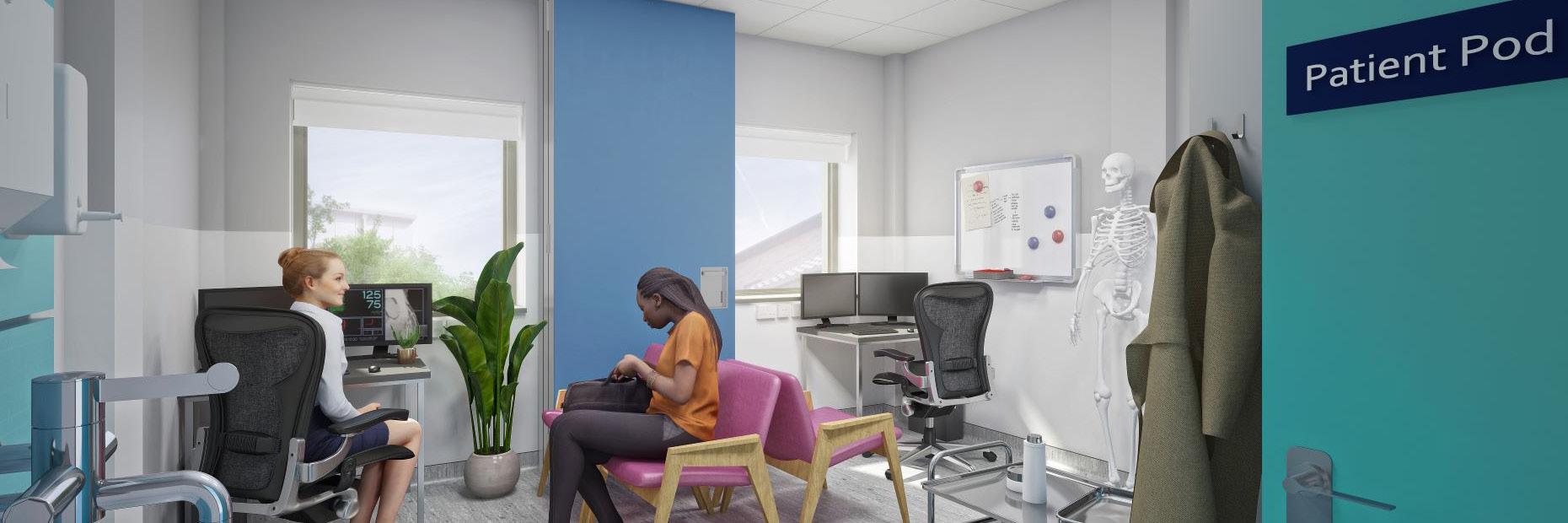
Ambitious OUR GETTING TO GOOD IMPROVEMENT JOURNEY Impact Magazine - Issue 8 13
PALLIATIVE AND END OF LIFE CARE
Providing high quality care for patients who are at the end of life or receiving palliative care is a key priority on our improvement journey.
We are ensuring our clinical colleagues are skilled and supported to deliver excellent care for our patients.
In our last CQC inspection we were rated as inadequate in end of life care at both Shrewsbury and Telford hospitals. Since then, a tremendous amount of work has been taking place as we strive to provide the very best care for our patients, families and loved ones at what is such an important time in their lives.
End of life care is about providing high quality care for people likely to die within a year and is intended to enable people to live as well as possible, supporting them in their mental, physical and emotional needs - and when they die, it is with dignity.
An action plan has been developed with patient care and supporting colleagues at its core. Our colleagues in the Palliative and End of Life Care Team (PEoLC) are central to delivering this and supporting teams.
Dr Emma Corbett, Consultant in Palliative Medicine and Lead Clinician for PEoLC, said: “One way in which we are improving staff support is through the PEoLC Ward Support Programme.
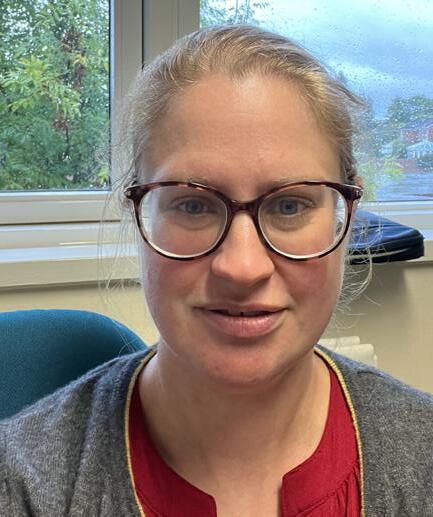
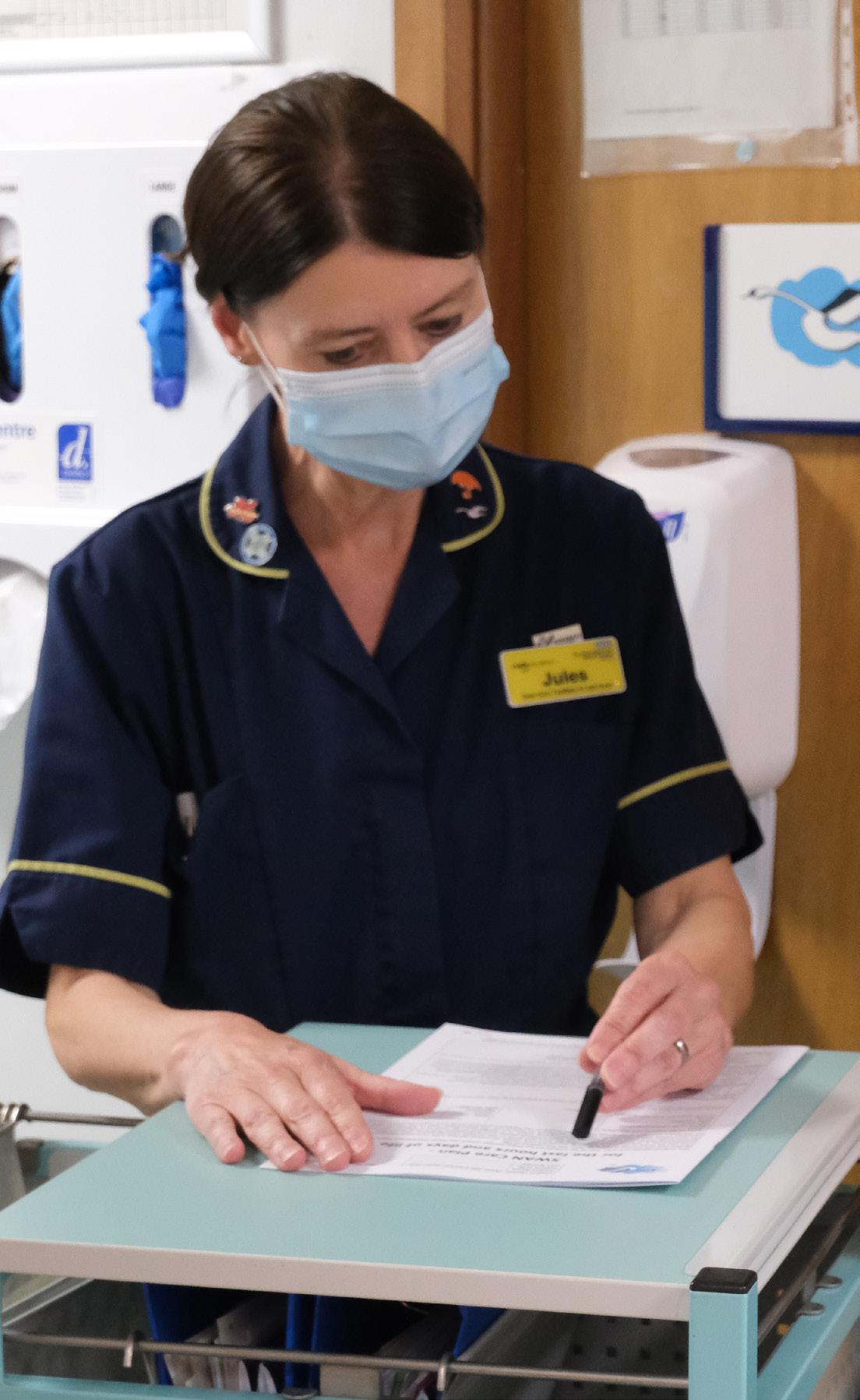
“Each month a new ward area is selected for more intensive support around all aspects of palliative and end of life care. Experiential teaching and support is delivered on the ward, improving the patient experience whilst also making the education more accessible and meaningful for colleagues.
“We have also made significant changes to our referral and triage process so that it is simple for colleagues to access support for their patients, and we can respond quickly to those most in need of support.”
Other areas of focus within the PEoLC improvement action plan include:
• Improved pain and symptom control
• Recognition of the last year/days of life
• Advance care planning
• Supporting the ReSPECT process (the creation of a personalised plan for clinical care in emergency situations where the patient cannot express their wishes)
• Improvements to the palliative discharge process
“The PEoLC dashboard, developed in the last 12 months, is helping us to monitor all our improvements whilst also highlighting those areas requiring more attention. All of this is delivered as part of a wider focus on patient experience, so we are working closely with partners across Shropshire, Telford and Wrekin to ensure a joined-up approach.”
Dr
Emma Corbett, Consultant in Palliative Medicine and Lead Clinician for PEoLC
Caring OUR GETTING TO GOOD IMPROVEMENT JOURNEY
Impact Magazine - Issue 8 14
Patient feedback
“My dad spent his last two days in the Swan Room which gave my sister, myself, and his wife the opportunity to sit quietly with him, talk and hold his hand in an atmosphere where he could be calm and manage his last hours with dignity. The small details, like the sky and cloud ceiling tiles, are beautiful touches. Please be assured that the Swan Rooms have an impact on the lives of relatives by making those last memories of a loved one so much better.”
One significant way in which we provide quality end of life and bereavement care is through our 24 Swan Rooms, the most recent being in ITU at PRH. There are 11 at PRH and 13 at RSH.

These specially designed rooms offer a more peaceful and calming environment for people to spend valuable time with their loved one at the end of life.
Ward 28 also recently opened our first Swan Suite - a quiet, comfortable space for colleagues to speak with those closest to the patient in a private and dignified way.
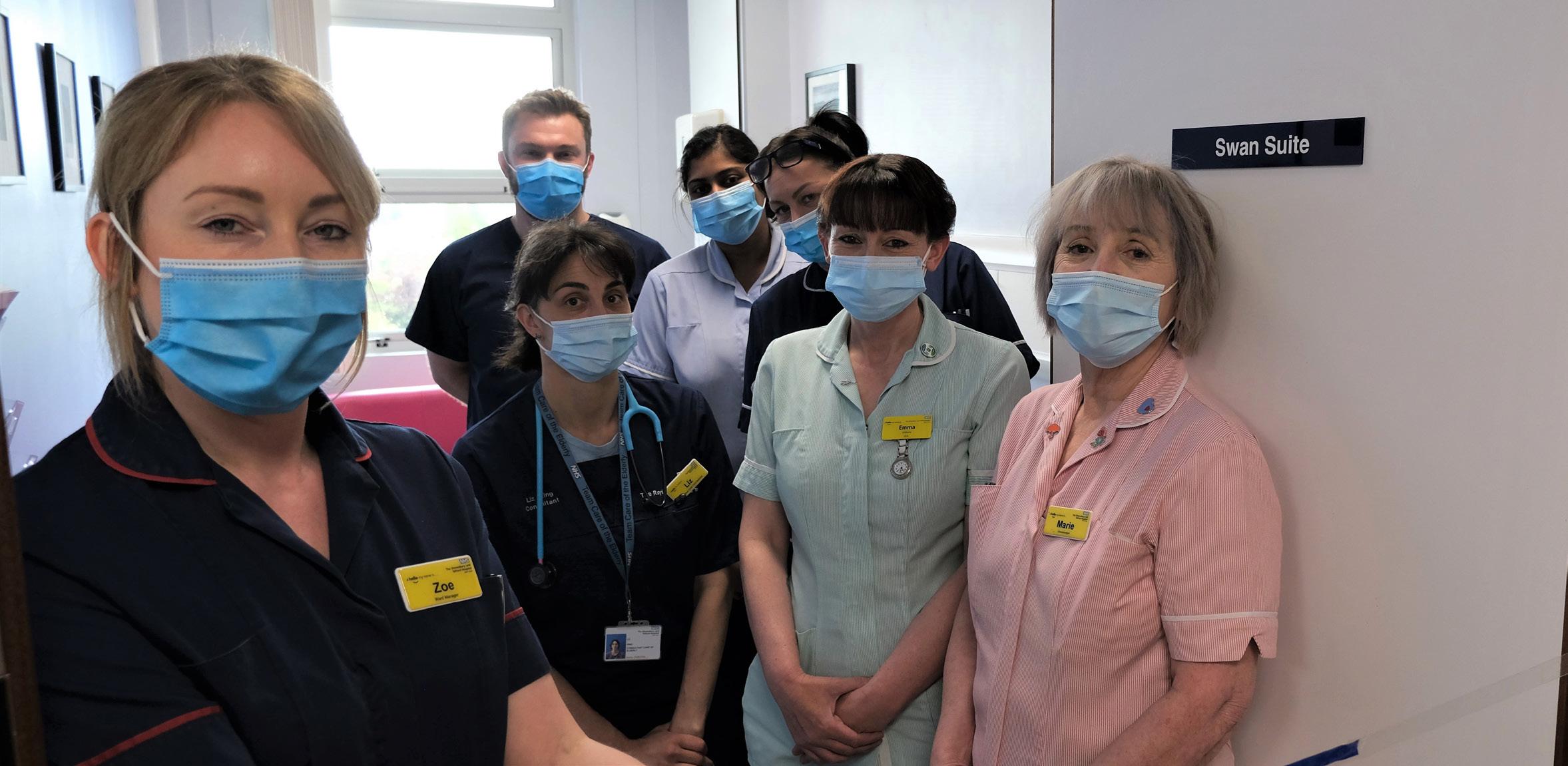
Jules Lewis, Swan End of Life Care Facilitator and Lead Nurse, said: “It is a privilege to care for people at end of life and support their relatives and friends at the hardest of times; we only have one chance to get it right.
“The Swan Rooms have become invaluable over the years. Not only do the patients and the people important to them really appreciate them, but
they help us to provide compassionate and excellent care for our communities.
“Each room is designed with the patient in mind. The walls are painted in calming colours, there are LED ceiling tiles featuring natural sky scenes, and there are comfortable pull-out chairs for visitors to stay overnight.
Caring OUR GETTING TO GOOD IMPROVEMENT JOURNEY
Impact Magazine - Issue 8 15
“Sometimes it’s the small things that make the biggest difference, and we are so grateful for the support of the Swan Fund, as well as kind donations from the community, for making this possible.”
INTERNATIONAL RECRUITMENT SUCCESS
We have plans in place to support our staffing needs through international recruitment so we can deliver safe, high quality care.
Attracting talent worldwide, particularly in nursing, and ensuring colleagues arrive ready to care for our patients is an integral part of developing and growing our workforce in line with the NHS People Plan.
We are partnered with NHSE (Nursing International Recruitment Programme) which is delivering an ethical and sustainable recruitment model, including for internationally educated nurses. The programme supports us, as ethical recruiters, to deliver our international recruitment plans.

We are extremely proud of our hugely diverse and multi-cultural workforce that has been built over many decades. There are a number of benefits to working for us from overseas and our patients, colleagues and community gain so much too.
We have recruited 500 international nurses from December 2019 to May 2023
Our international nursing colleagues come from 20 countries including India, Nigeria, Zimbabwe, Kenya, Barbados, Cyprus and Singapore.
Moving to a new country is a big decision and we want to make it as easy as possible for our internationally educated colleagues.
We have recently been awarded the NHS Pastoral Care Quality Award which recognises that we are supporting our internationally educated nurses and midwives through high quality pastoral care.
We are one of the most varied and diverse workforces in the Shropshire, Telford & Wrekin and this award confirms our commitment to supporting this fantastic workforce.
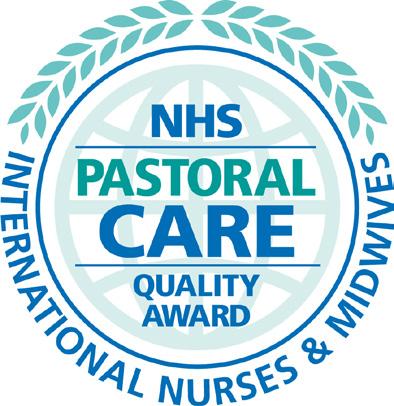
Trusted OUR GETTING TO GOOD IMPROVEMENT JOURNEY
India Nigeria Zimbabwe Saudi Arabia UAE Ghana Kenya Guyana Botswana Oman Jamaica Zambia Malta Barbados Nepal Kuwait Philippines Singapo re Cyprus Trinidad & Tobago
Impact Magazine - Issue 8 16
The largest proportion of colleagues come from India, closely followed by Nigeria and Zimbabwe, Saudi Arabia and UAE.
A message from Dame Ruth May, Chief Nursing Officer, England, and Duncan Barton, Deputy Chief Nursing Officer, England:
Thank you for supporting so many internationally educated nurses to join your team during 2022. We have no doubt that their valuable skills and experience are bringing significant benefit to patients, your local population, and colleagues.
We also recognise that recruiting and supporting the arrival of nurses from outside of the UK has been particularly challenging given the continued operational and workforce pressures this year, so to deliver your overall ambition is a fantastic achievement.
Our personal thanks go to you and everyone in your teams for all your hard work and commitment. We look forward to hearing more as you continue your successful work in this area.
Leo Kelechi Echendu joined SaTH in September 2022 from Nigeria, after the Trust was recommended as a place to work. Registered Nurse Leo works in the Acute Medical Unit at the Royal Shrewsbury Hospital.

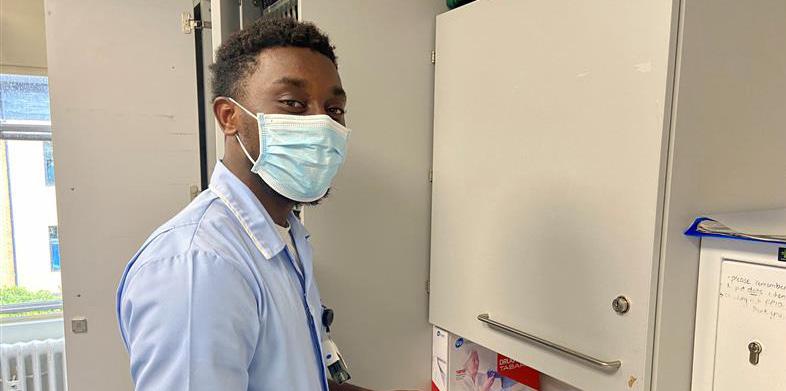
“SaTH came recommended to me as a great place to develop a career and I jumped at the chance to apply. I was so excited to be offered a job. The whole induction process was so easy.
“The welcome was fantastic, and I felt really cared for and looked after. I have settled into the SaTH community so well and I’m proud to work for an organisation that cares for its colleagues.”
Rhia Boyode, Director of People & OD
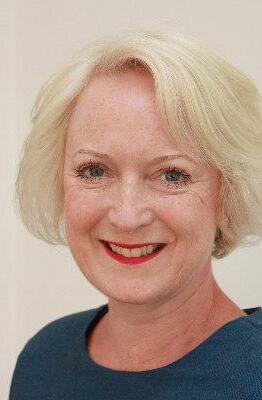
“From the inception of the NHS 75 years ago, patients have benefited from the expertise, commitment and compassion of staff who come to work in the NHS.
“We owe a considerable debt to our internationally educated colleagues who play their part in keeping the NHS running. The safe arrival, induction and provision of support for new colleagues joining our workforce is our number one priority for international recruitment and I am delighted that we are making huge strides in this area.
“We really do value our colleagues and our aim is to make our Trust a great place to work, so they want to remain with us to further develop their careers.”
OUR GETTING TO GOOD IMPROVEMENT JOURNEY
Trusted Impact Magazine - Issue 8 17
MATERNITY TRANSFORMATION PROGRAMME
As part of our Getting to Good improvement journey, we are striving to provide responsive and personalised care for thousands of women and families who choose to have their babies with us every year.
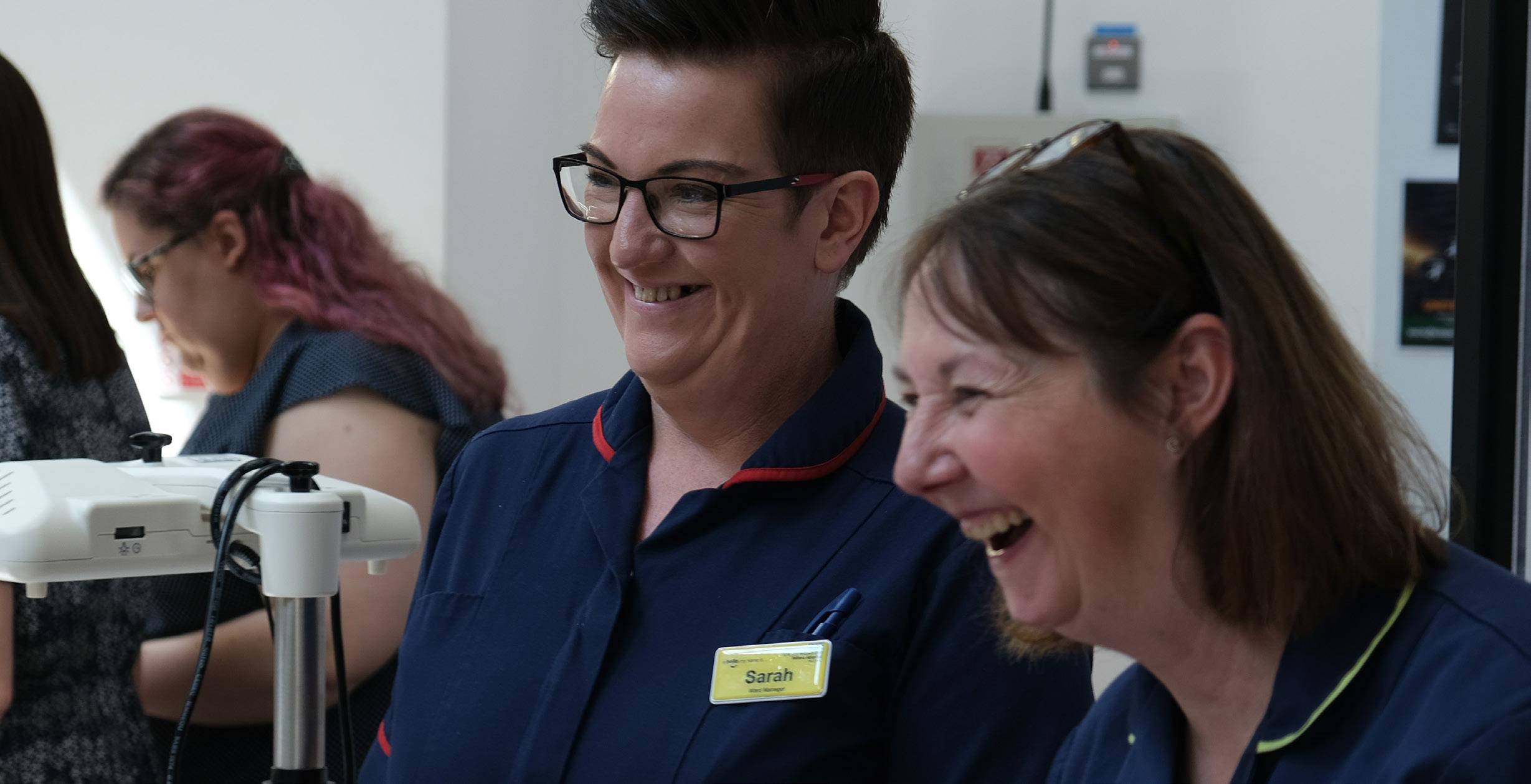
To help us to achieve this, our maternity colleagues have been exploring how we inform and engage with those who are using or are interested in using our maternity services.
It comes as we continue to make good progress on the delivery of our 210 actions from the Ockenden Report.
To ensure that we are able to provide the highest quality care, with our families at the heart, we have held our first Maternity Services Open Day at PRH.
More than 150 people attended, joining guided tours, including of our Delivery Suite, Midwife Led Unit, Postnatal Ward and Triage area. Visitors also watched simulation training which gave an insight into how our teams respond to emergencies.

Our visitors were also able to meet midwives and maternity services colleagues to ask questions, seek advice and learn about improvements that have been made across our services.
and
Co-ordinator, said: “It was a fantastic opportunity to engage directly with service users to encourage them to share their voices regarding their experiences of using local maternity services with us.”
Service User, Kylie Clayton, said “A really lovely and educational experience.
“Thank you for putting this on, it has really helped my confidence prepping for birth. It was very good to get to know the staff and see some friendly faces to answer questions.”
Caring OUR GETTING TO GOOD IMPROVEMENT JOURNEY
Angela Loughlin, Maternity Voices Partnership Shropshire
Telford & Wrekin Development
Impact Magazine - Issue 8 18
PROGRESS AGAINST THE ACTIONS IN THE OCKENDEN REPORT
First Report:
47/52 Actions Implemented (91% overall), comprising:
43 (84%) ‘Evidenced & Assured’
4 (8%) ‘Delivered, Not Yet Evidenced’
5 (10%) Actions ‘Not Yet Delivered’
Final Report:
125/158 Actions Implemented (79% overall):
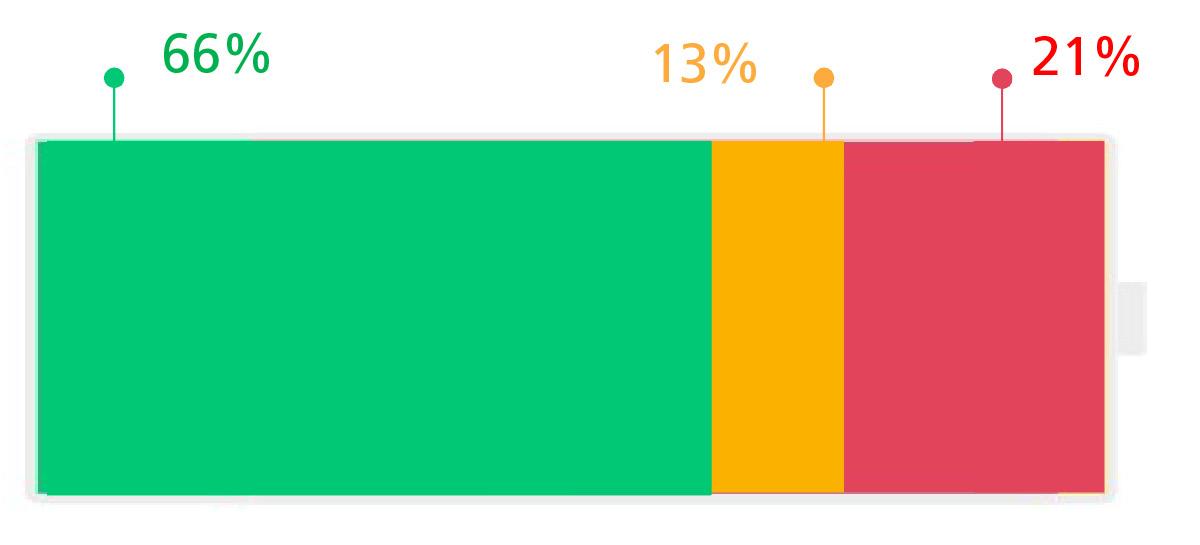
105 (66%) ‘Evidenced and Assured’
20 (17%) ‘Delivered, Not Yet Evidenced’
33 (21%) ‘Not yet Delivered’
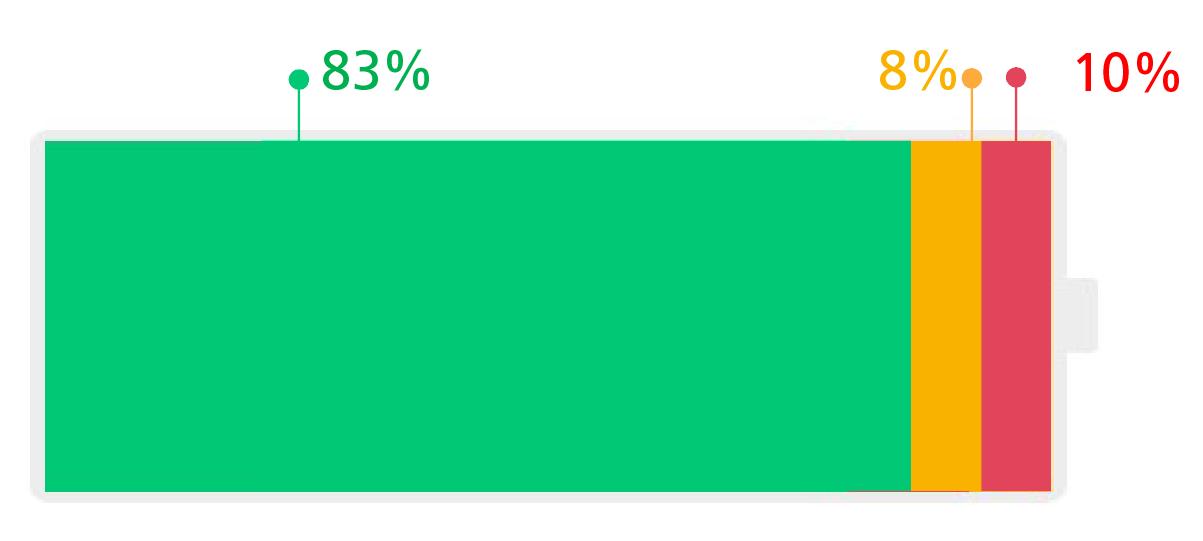
We continue to be ahead of our timeline to deliver and evidence our Ockenden actions. These completion rates are as of the end of May 2023.
“It was a pleasure to meet so many visitors and show them around our maternity services. People had lots of questions and were really interested in meeting our teams and learning more about what it’s like to have a baby under the care of SaTH.”
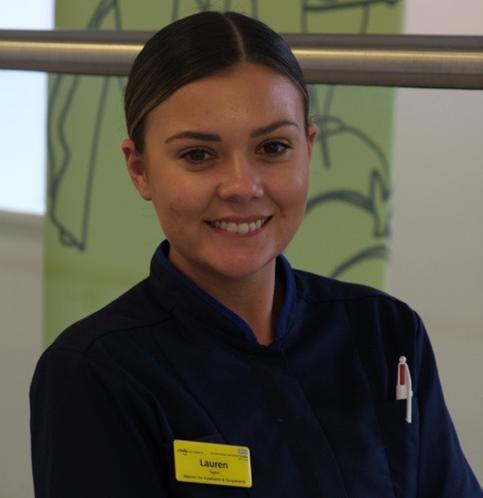
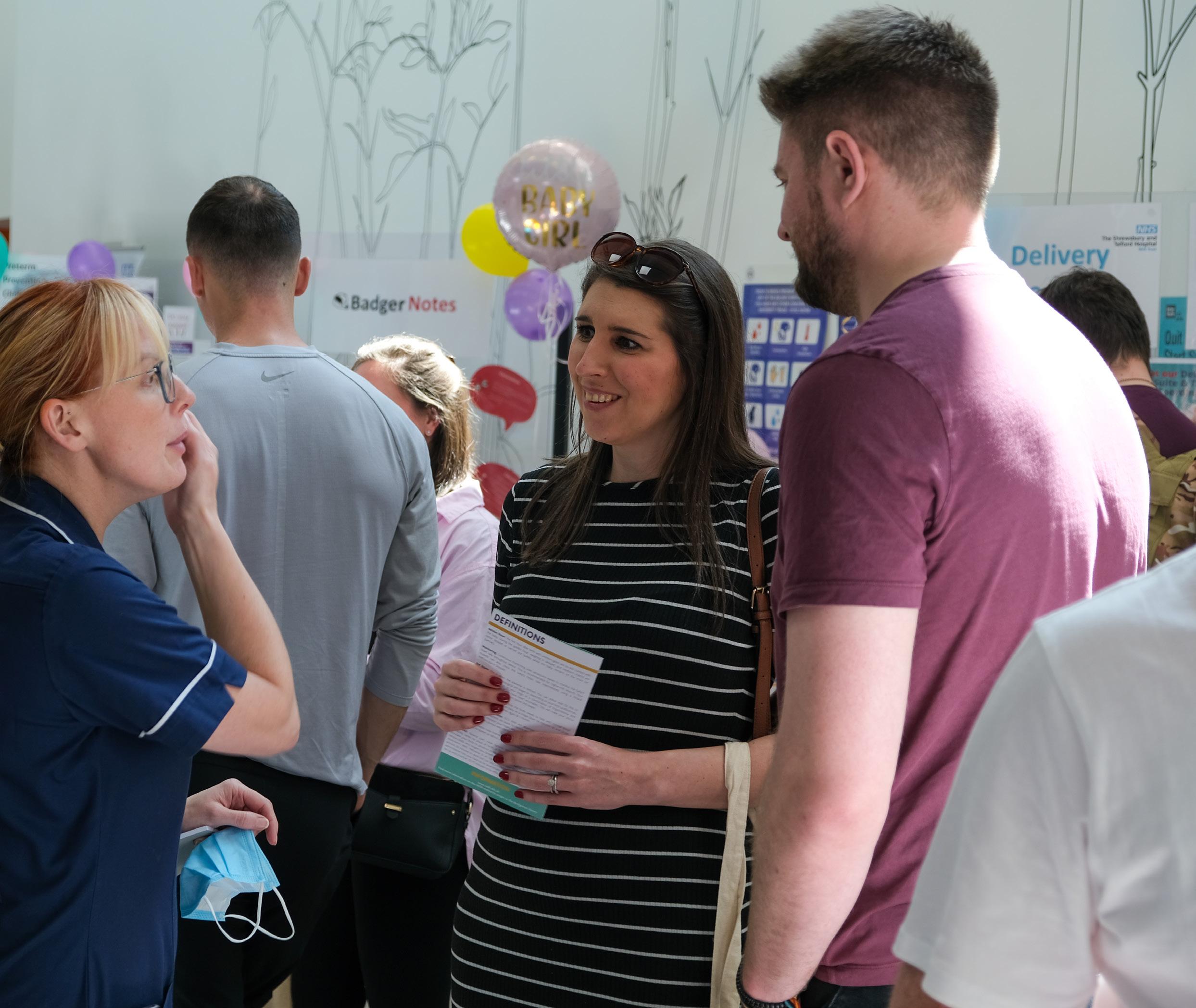
Caring OUR GETTING TO GOOD IMPROVEMENT JOURNEY
Lauren Taylor, Intrapartum Matron
Impact Magazine - Issue 8 19
In our next edition we will be focusing on:
• Providing high quality critical care

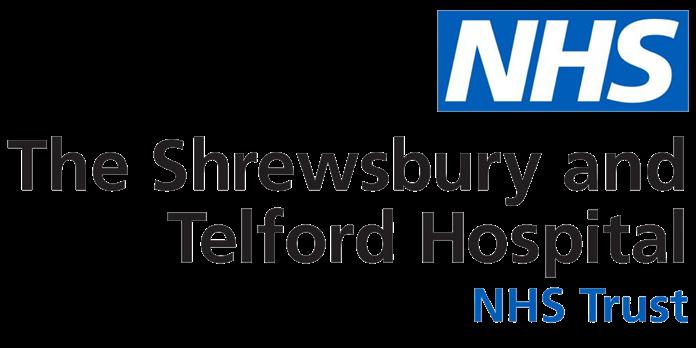
• How Patient Initiated Follow-Up (PIFU) is transforming outpatient care
• Ensuring we are learning from deaths
• How Freedom to Speak Up is helping drive change
G Partnering Ambitious Caring Trusted
Impact Magazine - Issue 8 20














































